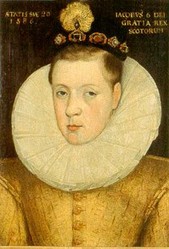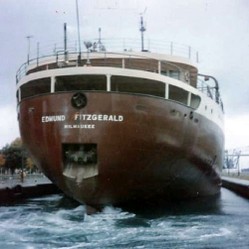When extremists take power they work quickly to remodel society according to their ideological preferences. In the late 1640s England along with Scotland, Wales and Ireland fell into the hands of Protestant extremists, who dominated in parliament. These gloomy men obsessed with their own righteousness as the elect decided to restructure society to a standard of severity far in excess of the monasteries that their predecessors had gleefully destroyed. But the people fought back.

When Christmas was cancelled
by frankbeswick
The year 1647 in Britain saw an attempt to ban Christmas. So what happened?
Who Took Over?
In 1647 the English Civil War was temporarily over. Charles the First was a prisoner of parliament, which was dominated by Oliver Cromwell and stuffed full of the victorious Protestant partisans. The Church of England had been abolished, its bishops deposed, and replaced by a Presbyterian church governance system of ministers. The Presbyterians were Calvinist in their theology and Puritan in their lifestyle. American readers will have met them already, for they were the religious group present at Salem, and we know what happened there.
A key puritan principle is, "Whatever is not a duty is a sin." In this way they differed from the joyful Catholics, whom they detested, with their love of feast days and belief that there can be Godly pleasure. Duties included reading the Bible, listening to preaching, prayer and diligent work. You should work hard and profitably, but as pleasure was not a duty you could not spend your money on pleasure, which is sinful. What's the point, you rightly ask, as did many other Christians at the time. But feast days, including Christmas and Easter, were banned and all festivities declared illegal, as these extremists took the opportunity to impose upon an unwilling nation an unattractive lifestyle that few wanted. Marriage celebrations were banned. You could wed, but have no party. Drinking alcohol could not be avoided, as ale was safer than water, but many alehouses were closed down.
Christmas came in for strict treatment. Puritans had had their eyes set on Christmas for the previous hundred years, because they accused it of being a time of carnal revelry rather than solemn and sober religious contemplation. While it is a myth that mince pies were banned, Christmas festivities, at which mince pies are eaten, were abolished and the ban enforced where possible by police and military action. Decorating houses with holly or other greenery was banned, as was the singing of Christmas carols. Partying was forbidden and dancing banned as a tool of the Devil. Worse, Christmas day was declared a work day and shops were obliged to open, forcing their owners to abstain from celebrations.
The People Fight Back
Records for much of the country are scarce. Scottish clans ruled themselves and those of Catholic disposition would have ignored the rules. Wales was strongly Protestant and did not rebel. The Irish would have done what they always did with English rules-ignore them, especially in the west. Northern England probably had some compliance and some disobedience, but the South East rebelled.
The first was Norwich in wool-prosperous East Anglia. Then known as England's second city, its inhabitants petitioned the mayor to allow Christmas celebrations. He could not allow them, but turned a blind eye to Christmas festivities. Kent, England's most south-easterly county, followed. In Canterbury, the county town of Kent, a traditional football match was held. These football matches were rumbustious occasions when local lads met for a wild time. Hardly Puritan sobriety! Partying spread across Kent and inspired responses in nearby London. Some householders contented themselves with a simple protest, bedecking their doors with holly or other evergreens, but the Puritan mayor of London was verbally abused when he and some veteran troopers tore down decorations. In some towns gangs of young men armed with spiked clubs toured shops forcing them to close. Armed force had to be used to bring the situation to order.
There was official response. In April 1648 officers were sent to Norwich to bring the mayor to London to account for his inaction While the messengers were conferring with the mayor a royalist riot broke out and turned into a rebellion. Unfortunately, the royalists had 98 barrels of gunpowder, which accidentally blew up in the town square, in what was called The Great Blow, which was heard through the whole county of Norfolk and resulted in up to forty dead. The implications of the riot were that eight people were hanged, seven people imprisoned and two whipped, along with two witches executed. The mayor was not among them.
In the following Christmas similar riots broke out across the South-East, but this time royalists were integral to the situation, which was a stage in the kindling of the second civil war. But the Christmas riots showed that England was not Puritan and that there was a deep support for the king and the old order.
Reflections
I was inspired to write this article by a threat to Christmas celebrations in the UK. The government, whom I heartily detest, actually did something right, allowing a cessation of certain covid measures over Christmas, five days of limited release for a population deprived of much socialisation and fun. But certain medics objected and tried to scare the government into reversing their decision with talk of post-Christmas deaths and a health service overwhelmed. Their arguments were based on the traditional authoritarian nostrum that the people cannot be trusted to make decisions for themselves and so professionals must make decisions for them. These modern Puritans tried to by-pass the people by creating a press campaign intended to pressurise the government into reversal. This is a standard technique among extremists, cut the people out of the decision-making process and aim for the leaders.
The name for their attitude is paternalism, making decisions for people for their own good. True, governments must make some decisions, but there must always be significant space and time for personal liberty. I particularly object to the paternalistic excuse for added restrictions, "protect Grandad." I am a grandad and when I want protection I will ask for it. I can choose for myself when to avoid situations, people and places.
Their plan fortunately had limited success. The government merely changed its guidance, though the Scots and Welsh governments gave guidance stricter than the guidance in England. But forewarned is fore armed. The covid law is time limited and has just over a year to run. Libertarians must ensure that as the law expires these authoritarian medics do not successfully launch a campaign for just another year of restrictions, and then another. The price of freedom is constant vigilance.
You might also like
King James I's Obsession With WitchesJames I's preoccupation with witchcraft, prompted persecution of so-called wi...
Thinking about NalediThe new discoveries in the Rising Star cave in South Africa arouse questions ...
Shipwreck: the Edmund FitzgeraldBesides the song Wreck of the Edmund Fitzgerald, there's so much more about t...







 Darkness over the Earth the skies darkened when Jesus was crucified12 days ago
Darkness over the Earth the skies darkened when Jesus was crucified12 days ago
 TheThousand Year Gardenon 11/26/2025
TheThousand Year Gardenon 11/26/2025
 Women of the Gospelson 10/11/2025
Women of the Gospelson 10/11/2025
 Religious Gardenson 08/25/2025
Religious Gardenson 08/25/2025




Comments
Thank you!
The J.M. Smucker Company keeps beef in its high-regarded mince pies even as Unitedstatesian mince pies trend toward fruits such as apples with nuts such as pecans and spices such as nutmeg.
What fruits might east-side ponders mix into their mince pies?
Mince pies have been very strongly associated with Christmas, and while they are eaten in Winter, the link between them and Christmas is very strong.
Thank you!
Mince pies can be associated with Unitedstatesian Thanksgiving or Christmas fare here.
Might that be their popular times among eastern-side pondites?
Correct
So fruit and meat mince pie is a vanished tradition commercially!
Is it that mixed-mince pie looks, smells, tastes, textures less appetizingly than mince pie with just fruit or with just meat?
In have never heard of traditional meat and fruit mince being produced anywhere.
Thank you!
Your comment Jan. 9, 2021, in answer to my previous question Jan. 8, 2021, indicates that "Mince pies used to be a mixture of fruit and meat. Only in the nineteenth century was mince separated into fruit mince and mincemeat."
Is that still the general practice in the 21st century?
Or might mixed fruit and meat be found in grocery stores and markets or in specialty shops or not at all?
They drunkn weĺl water, but privately carried on drinking alevand cider.
The second paragraph to the first subheading, Who took over?, considers that "Drinking alcohol could not be avoided, as ale was safer than water, but many alehouses were closed down."
Did the English not drink water in the city and in the country?
Or might running-stream water have been deemed safe?
Further to my comment on America's troubled situation post-election, my best wishes and prayers go out to my American readers and your great country in your striving to secure democracy.